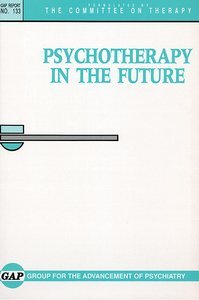Mental Health
A Guide for Faith Leaders
View Pricing
Description
The American Psychiatric Association Foundation has produced two new resources to help faith leaders better understand mental illness and treatment, and better help individuals and families in their congregations facing mental health challenges, Mental Health: A Guide for Faith Leaders and a companion two-page Quick Reference on Mental Health for Faith Leaders. These resources are the culmination of work from the Mental Health and Faith Community Partnership, a collaboration of psychiatrists and faith leaders representing diverse faith traditions.
Many people facing a mental health challenge, personally or with a family member, turn first to a faith leader. And for many receiving psychiatric care, religion and spirituality are an important part of healing. In their role as first responders, faith leaders can help dispel misunderstandings, reduce stigma associated with mental illness and treatment, and help access to treatment for those in need. The Guide and Quick Reference provide faith leaders with the knowledge, tools and resources to support that role.
The Guide includes a general overview of mental health and mental illness and information on how faith leaders can support people with mental health challenges. For example, it discusses how to create a more inclusive and welcoming community, when and how to make a referral to professional mental health services, and ways to deal with resistance to accepting mental health treatment. The one page Quick Reference Guide is included.
Visit APA Foundation at apafdn.org/
Contents
- Part I: Mental Health Overview. What Is Mental Illness? Common Mental Illnesses. Suicide. Diagnosis. Mental Health Treatment. The Connection Between Mental and Physical Conditions. Recovery, Wellness, and Building Resilience. Part II: Faith Leader Support for People With Mental Illness. How Congregations Can Be More Inclusive/Welcoming. When to Make a Referral to a Mental Health Professional. How to Make a Referral for Mental Health Treatment. Dealing With Resistance to Accepting Mental Health Treatment. Distinguishing Religious or Spiritual Problems From Mental Illness. Approaching a Person With an Urgent Mental Health Concern. Resources.
Contributors
- Acknowledgements
Mental Health: A Guide for Faith Leaders has been made possible through the expertise, time, and efforts of many individuals.
- Special gratitude to:
- Mental Health and Faith Community Partnership Steering Committee
Farha Abbasi, M.D., Michigan State University*
Chaplain Clark Aist, Ph.D., St. Elizabeths Hospital (emeritus)*
Vijaya Appareddy, M.D., Commission to End Health Care Disparities
Abdul Basit, Ph.D., University of Chicago
Tiffani Bell, M.D., Medical College of Virginia/Virginia Commonwealth University*
Rev. William Byron, S.J., St. Joseph's University
Frank Clark, M.D., Carilion Clinic/St. Albans Hospital*
C. Robert Cloninger, M.D., Washington University in St. Louis
Mary Lynn Dell, M.D., D.Min., Nationwide Children's Hospital and the Ohio State University*
Tatiana Falcone, M.D., Cleveland Clinic
Alan Fung, M.D., M.Phil., Sc.D., University of Toronto*
Bill Gaventa, M.Div., Summer Institute on Theology and Disability
Katrina Gay, National Alliance on Mental Illness
Rev. Susan Gregg-Schroeder, Mental Health Ministries
James Griffith, M.D., George Washington University
Danielle Hairston, M.D., Howard University Hospital*
Sidney Hankerson, M.D., Columbia University, College of Physicians and Surgeons
Richard Harding, M.D., University of South Carolina School of Medicine
Rev. Dr. Jason Hays, First Congregational Church*
Rev. Dr. George Holmes, President Barack Obama National Clergy Leadership Group
Rev. Patrick Howell, S.J., Institute for Catholic Thought and Culture, Seattle University*
Rev. Alan Johnson, United Church of Christ*
Nancy Kehoe, Ph.D., R.S.C.J., Harvard Medical School*
Patrick Kennedy, The Kennedy Forum
Warren Kinghorn, M.D, Th.D., Duke University Medical Center
Deacon Tom Lambert, Archdiocese of Chicago/NCPD Council on Mental Illness
James Lomax, M.D., Menninger Department of Psychiatry
Francis Lu, M.D., University of California, Davis*
Rabbi Edythe Mencher, L.C.S.W., Union for Reform Judaism
Charles Nemeroff, M.D., Ph.D., Department of Psychiatry and Behavioral Sciences
Rev. Darlene Nipper, National LGBTQ Task Force
Grayson Norquist, M.D., M.S.P.H., Patient-Centered Outcomes Research Institute, University of Mississippi
Abraham Nussbaum, M.D., M.T.S., Denver Health/University of Colorado
John Peteet, M.D., Harvard Medical School*
Meena Ramani, M.D., Nassau University Medical Center
Curtis Ramsey-Lucas, M.Div., American Baptist Home Mission Societies*
Aruna Rao, M.A., National Alliance on Mental Illness
Rev. Craig Rennebohm, M.Div., Pathways to Promise
Sullivan Robinson, M.A., Leadership Council for Healthy Communities
Rev. Douglas Ronsheim, D.Min., American Association of Pastoral Counselors*
Rev. Gabriel Salguero, National Latino Evangelical Coalition*
Rev. Jeanette Salguero, National Latino Evangelical Coalition*
Steven Scoggin, Psy.D., L.P.C., CareNet, Inc.
Altha Stewart, M.D., Just Care Family Network
Sayyid Syeed, M.D., Islamic Society of North America, Office for Interfaith & Community Alliances
Rev. Dr. Frank Tucker, Leadership Council for Healthy Communities
R. Dale Walker, M.D., Oregon Health and Science University
Pastor Dianne Young, The Healing Center
Bishop William Young, The Healing Center
James Zahniser, Ph.D., Pathways to Promise*
*Work group member, Mental Health: A Guide for Faith Leaders
- Planning Committee and Staff
American Psychiatric Association
The American Psychiatric Association is a national medical specialty society whose physician members specialize in the diagnosis, treatment, prevention, and research of mental illnesses, including substance use disorders.
- Paul Summergrad, M.D., President (2014-2015)
Saul Levin, M.D., M.P.A., CEO and Medical Director
Ranna Parekh, M.D., M.P.H., Deputy Director, Director, Division of Diversity and Health Equity
Yoshie Davison, M.S.W., Chief of Staff
Annelle Primm, M.D., M.P.H., APA Member
Deborah Cohen, M.B.A., Senior Writer, Communications and Public Affairs
Adam Scott, Senior Graphic Designer, Integrated Marketing
- American Psychiatric Association Foundation
The American Psychiatric Association Foundation (APAF), the philanthropic and educational arm of the American Psychiatric Association, works to create a mentally healthy nation by advancing mental health, overcoming mental illness, and eliminating stigma. The Foundation combines the knowledge and credibility of the world's largest psychiatric organization with its patient and family-centered mission.
- Daniel Gillison, Jr., Executive Director
Amy Porfiri, M.B.A., Deputy Director
About the Authors
The American Psychiatric Association Foundation, the philanthropic and educational arm of the American Psychiatric Association, works to create a mentally healthy nation by advancing mental health, overcoming mental illness, and eliminating stigma. The Foundation combines the knowledge and credibility of the world's largest psychiatric organization with its patient and family-centered mission.
Related Products
Carousel Control - items will scroll by tabbing through them, otherwise arrows can be used to scroll one item at a time



